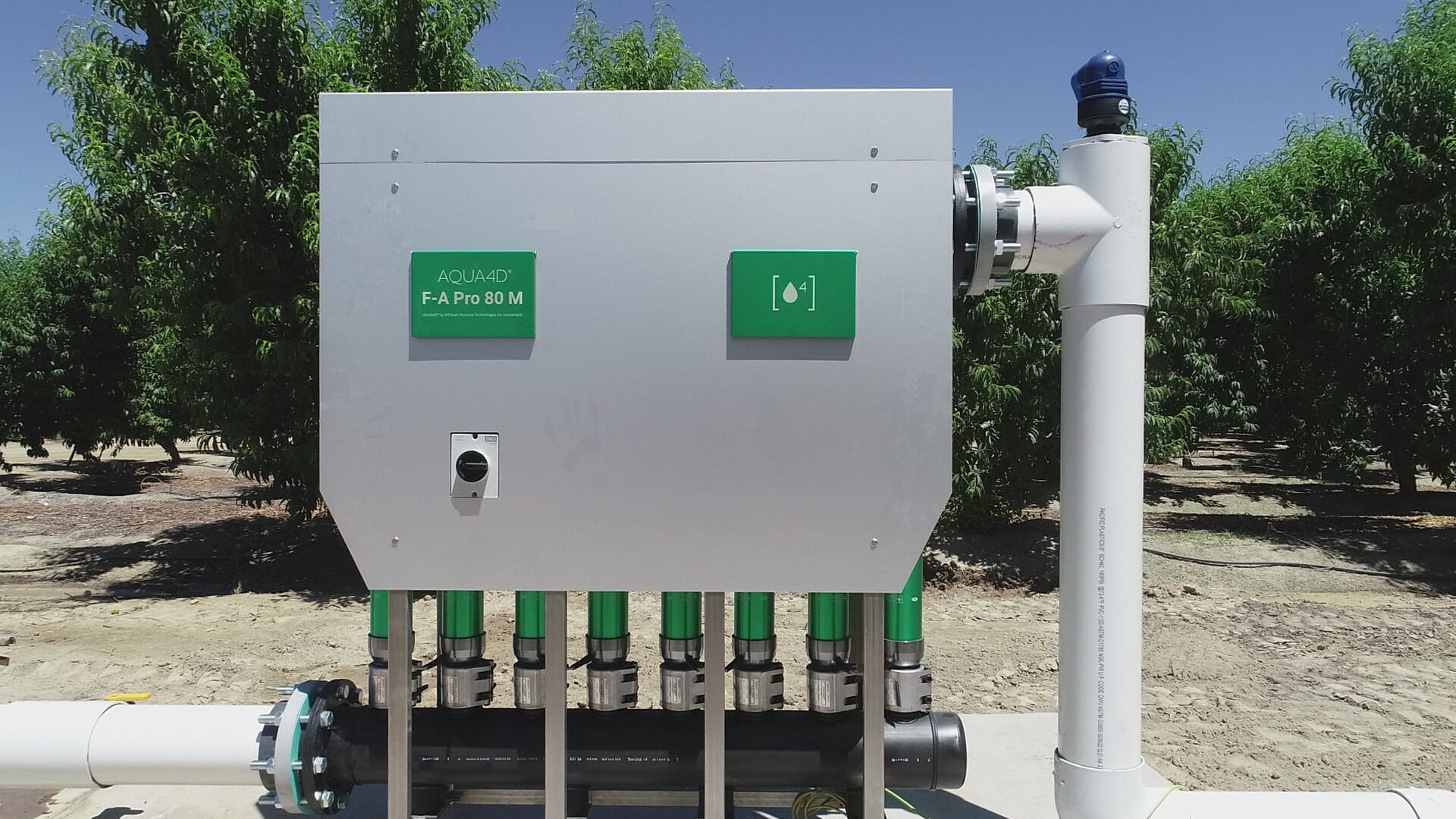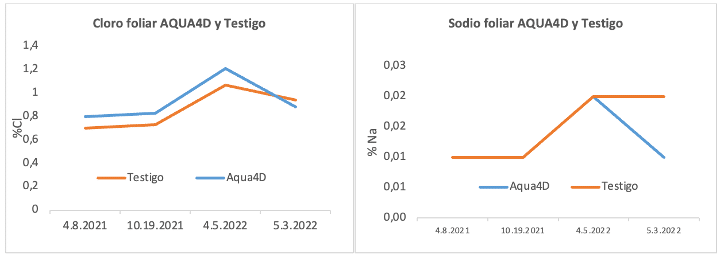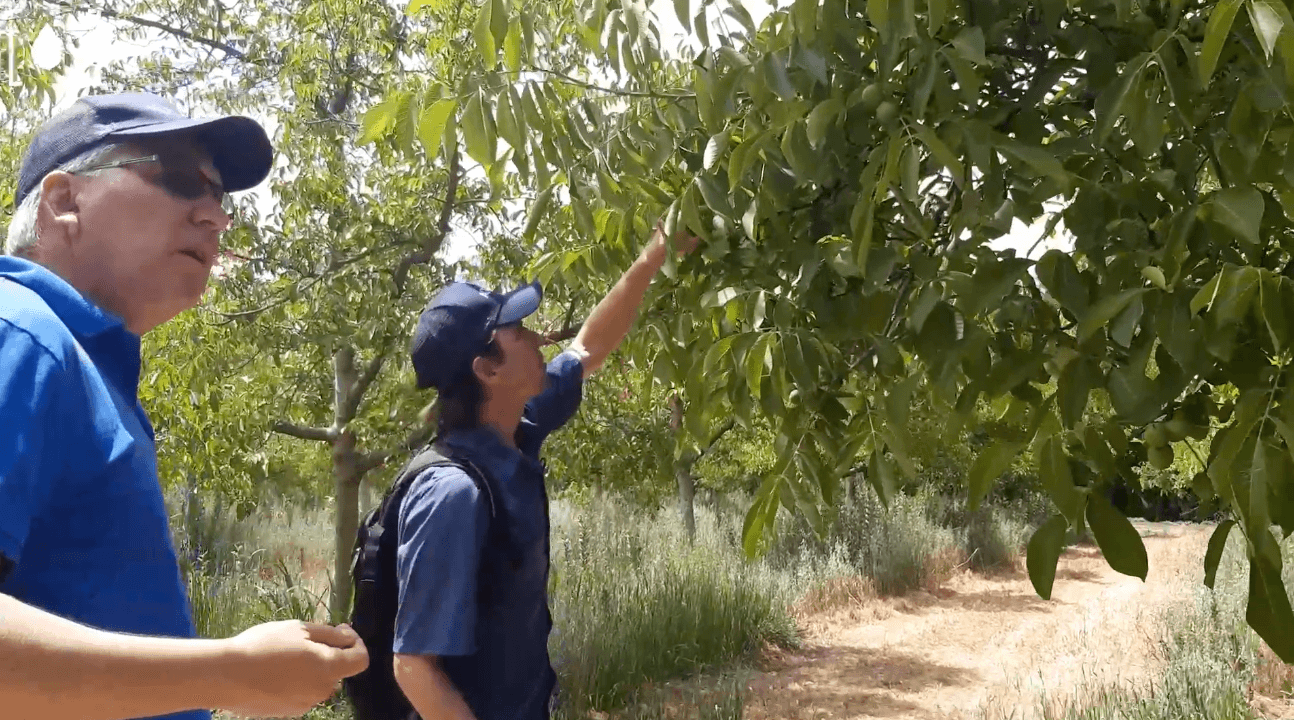Chile is already one of the world’s leading cherry producers, and its market is seeing exponential growth – exports to China alone in 2023 will reach 400,000 tons. These are indeed healthy numbers which have turned cherries into “one of the country’s most important agro-export products”. However, this is also a crop which is very sensitive to salinity and fluctuations in water availability – two common issues in many cherry-growing areas.
Faced with these interrelated threats, Chilean growers have an eye on ensuring they can keep up with demand in the years ahead, and maintain the quality the market expects. Let’s look at how water treatment technology may help them do just this.
Technological solutions to salinity
Like many crops, cherry trees are vulnerable to excess salts. They can generally cope with electroconductivity (EC) levels of up to 2 dS/m, but beyond this becomes a challenge. Over-irrigation of crops with high-EC water further complicates things and leads to a dangerous build-up of salts in the soil.
Salinity management is therefore key, but until now there has not been a sustainable way of doing this which is cost-effective and water-efficient. Water treatment technology by AQUA4D® offers just this, with a proven solution to reduce salinity levels while still being able to irrigate with the same high-EC water.
Present in Chile since 2019, there have been some famous successes in crops such as citrus, walnuts, and most prominently avocados – with impressive results overseen by academics from INACAP. In these cases, their precision irrigation technology reduced salinity levels while increasing water efficiency. One such avocado case was in Santo Domingo, where comparisons between untreated and treated trees showed chlorine and sodium reducing by 21% and 50% respectively:
Meanwhile, the important dry fruit producer Geonuts could overcome significant phytotoxicity issues within a matter of months. Thanks to water treatment, they could reduce the chloride levels in their soils by a third, and maintain electroconductivity (EC) of at 1.05 dS/m in the root zone. Due to its effect on the dissolution of minerals, AQUA4D® has therefore allowed continued irrigation with water of 2.67 dS/m from the Maipo River, a level which would normally be detrimental for nut production.
“We chose AQUA4D® technology with the purpose of a more sustainable management of our orchard to take control of our major problems: salts and shortage of water,” says Héctor Cortés, Agriculture Manager at Geonuts. “In the coming seasons, we hope to restore the orchard’s productive potential in this challenging scenario.”
AQUA4D LATAM agronomy team visiting Geonuts orchards in Chile
The potential for cherry growers would be huge, helping improve salinity and water efficiency at the same time, while regenerating soils without the use of intensive soil washing or use of acids or chemicals.
Improving water availability
Cherry trees go through simultaneous fruit formation, leaf emergence and bud growth, which all involves a high water demand. As AQUA4D® allows a better retention of moisture in the soil – regardless of the type of soil or substrate – this allows growers to keep soils moist during dry conditions or when facing fluctuating availability.
This is good news for growers suffering fruit splitting or “cracking”, a phenomenon occurring due to swift changes in soil moisture and considered one of the main causes of cherry crop losses. As AQUA4D® maintains a constant humidity in the soil and improves nutrient absorption, this avoids the “calcium micro deficiencies” associated with cracking. A 2023 study at University of California found that these effects of AQUA4D® even extend beyond irrigation, with soils absorbing more rainwater too.
Maintaining tree health and reducing productivity risks
Both too much and too little water water can have detrimental effects on cherry tree health, says agronomist Enrique Rebaza: “Situations of water stress favor the bacterial canker disease that affects orchards in Chile. On the contrary, excess moisture in the trunk or neck of the cherry tree can facilitate damage by the phytophtora fungus.” Better water infiltration with AQUA4D® allows to avoid these conditions and reduce the incidence of these diseases, and keep things at a happy medium.
Of course, this all has knock-on effects on production quality and quantity. In cherry trees, fruit growth coincides with rapid vegetative growth, so it is ideal to maintain a high water potential during the period when the fruit is on the tree, thus ensuring maximum fruit size and quality with higher market demand. Precision Irrigation can maintain a high water potential of the crops, even in presence of salts or water shortage.
With more water and nutrients available to the plants, they can flourish to their full potential even in scenarios of restricted water. “In the case of cherries, calcium is key for fruit quality and AQUA4D® is a proven way of improving the absorption and availability of this important mineral,” says Rebaza.
Additionally, a study in the Netherlands using real-time measurements showed that plants irrigated using AQUA4D® dealt better with stress, grew more vegetatively, and needed to use less of their internal reserves. “This energy surplus goes towards the fruits instead of growth and this results in higher yields,” says 2Grow’s Olivier Begerem, who was involved in the study.
Conclusion
AQUA4D is rolling out its technology across growers in Latin America, with cherry growers the latest to show significant interest in treating salinity while increasing water efficiency.
“Water treatment can help cherry growers deal with some of their crop’s most sensitive issues,” believes Enrique Rebaza. “Water is scarce in many areas yet normal irrigation would bring more sodium into play. In these common scenarios, AQUA4D can reduce sodium levels while maintaining good soil hydraulics and thus an adequate air-water balance, with ultimately positive impacts on tree nutrition.”
Latin America
Water-Smart Agriculture
Precision Irrigation
“Water treatment can help cherry growers deal with some of their crop’s most sensitive issues. It can reduce sodium levels while maintaining good soil hydraulics and thus an adequate air-water balance, with ultimately positive impacts on tree nutrition.” – Enrique Rebaza, chief agronomist

Typical AQUA4D® Pro-M system for irrigation fruit trees




